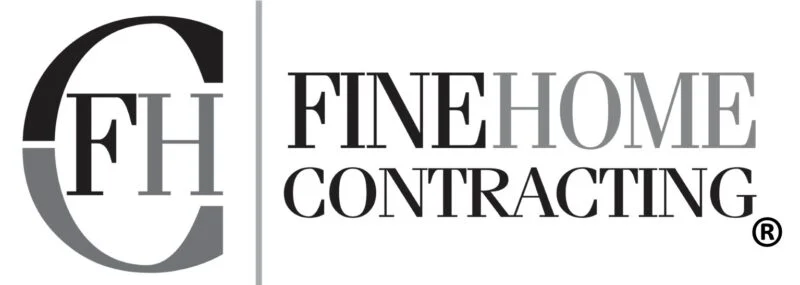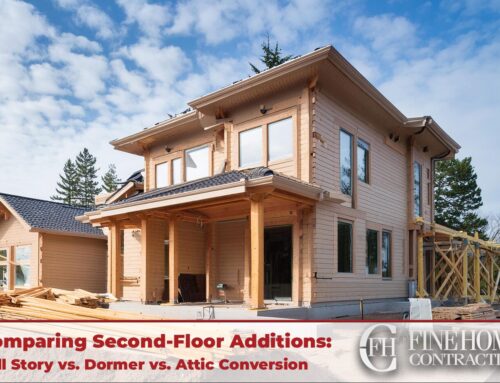Hiring a contractor is an important decision that requires careful consideration. Whether you’re renovating your home or building a new one, it’s essential to hire a licensed and insured contractor in Connecticut. By doing so, you can protect yourself from potential legal and financial issues that may arise from working with an unlicensed or uninsured contractor. In this article, we’ll discuss the importance of working with licensed and insured contractors, explore the license and insurance requirements in Connecticut, and provide practical advice on how to verify a contractor’s license and insurance. We’ll also cover common red flags to watch out for when hiring a contractor, the benefits of working with a licensed and insured contractor, and what to do if you experience issues with an unlicensed or uninsured contractor in Connecticut.
The Importance of Hiring a Licensed and Insured Contractor in Connecticut
Hiring a contractor for a home improvement or renovation project can be a daunting task, but it’s essential to ensure you hire the right person. One of the most crucial factors to consider when choosing a contractor is whether they’re licensed and insured.
Why Hiring a Licensed and Insured Contractor is Important
A licensed contractor is one who has met the state’s requirements to work as a contractor in Connecticut. Having a license ensures that the contractor has the necessary training, knowledge, and experience to do the job right.
When a contractor is insured, it means that they have a liability insurance policy that protects you, your property, and the contractor’s workers in case of an accident or damage during the project.
The Risks of Hiring an Unlicensed or Uninsured Contractor
Hiring an unlicensed or uninsured contractor is risky business. An unlicensed contractor may not have the required knowledge, training, or experience to do the job right, leading to shoddy workmanship and substandard results.
An uninsured contractor may expose you to financial risks in case of accidents, damages, or personal injuries that occur on your property during the project. It’s crucial to ensure that the contractor you hire has the necessary license and insurance coverage to protect yourself and your investment.
Understanding Contractor License and Insurance Requirements in Connecticut
Contractor Licensing Requirements in Connecticut
In Connecticut, contractors must hold a Home Improvement Contractor (HIC) registration or a New Home Construction Contractor registration to work on home improvement or construction projects. To get a license, contractors must meet the state’s requirements, including education, experience, and references. These licensed are typically listed as a number preceded by the type of license, for example: HIC#.0000001 or NHC#.0000001.
Contractor Insurance Requirements in Connecticut
Contractors in Connecticut must have insurance coverage that includes workers’ compensation, liability, and property damage coverage. Workers’ compensation insurance covers workplace injuries to the contractor’s employees, while liability insurance covers damages to your property or personal injuries resulting from the project.
How to Verify a Contractor’s License in Connecticut
Checking a Contractor’s License Number and Status
To verify a contractor’s license in Connecticut, you can check the Department of Consumer Protection’s online license lookup tool. The lookup tool allows you to search for a contractor’s license number and status and ensures that the contractor has met all the state’s requirements.
Verifying a Contractor’s Credentials With State Agencies
You can also verify a contractor’s credentials with state agencies like the Connecticut Better Business Bureau and the Attorney General’s office. These agencies can provide information on any complaints or lawsuits filed against the contractor, helping you make an informed decision.
How to Verify a Contractor’s Insurance in Connecticut
Types of Insurance Coverage Contractors Should Have
Before hiring a contractor in Connecticut, you should ensure that they have workers’ compensation insurance, general liability insurance, and property damage insurance. Workers’ compensation insurance covers the contractor’s employees in case of an accident on the job, while general liability insurance covers any damages to your property or injuries to anyone on your property during the project. Property damage insurance covers any damages to property caused by the project.
How to Check a Contractor’s Insurance Policy and Coverage Limits
To check a contractor’s insurance policy and coverage limits, ask for a certificate of insurance. This certificate provides information on the contractor’s insurance coverage, including the type of insurance, coverage limits, and the insurance company’s contact information. You can also contact the insurance company directly to verify the policy’s validity.
Common Red Flags to Watch out for When Hiring a Contractor in Connecticut
When looking for a contractor in Connecticut, it’s important to be cautious and aware of potential red flags that could indicate an unlicensed or uninsured contractor. Some of the most common signs include contractors who offer a low price without providing a written estimate, those who request payment in cash or upfront, and those who do not have a physical address or proof of insurance. Additionally, be wary of contractors who pressure you into making decisions quickly or who do not have a portfolio of previous work.
Signs of an Unlicensed or Uninsured Contractor
One of the most significant signs that a contractor is unlicensed or uninsured is the lack of credentials or proper documentation. Always ask contractors to provide their license and insurance information, and make sure to verify this information with the relevant state or local authorities. If a contractor is hesitant to provide this information, it’s best to find another one.
Warning Signs of Shoddy Work and Untrustworthy Contractors
A contractor’s past work can provide a lot of insight into their abilities, so it’s essential to look at their portfolio and previous customer reviews. If the contractor has no references or negative reviews, this could be a warning sign of shoddy work. Additionally, a contractor who is unwilling to provide a warranty or guarantee for their work may not be trustworthy.
Benefits of Hiring a Licensed and Insured Contractor in Connecticut
Hiring a licensed and insured contractor provides many benefits to homeowners in Connecticut. Not only does it ensure that the contractor has the proper credentials and qualifications, but it also provides legal protection and peace of mind.
Legal Protection and Peace of Mind
Hiring a licensed and insured contractor means that your project is protected from potential legal disputes and financial liabilities. If there are any issues with the work done, licensed and insured contractors are required to resolve them accordingly, and their insurance can cover any damages.
Higher-Quality Work and Professionalism
Licensed and insured contractors in Connecticut are held to strict standards and regulations, ensuring that they provide high-quality work and maintain professionalism at all times. They are also required to complete continuing education courses, keeping them up to date on the latest industry trends and best practices.
What to Do If You Experience Issues With an Unlicensed or Uninsured Contractor in Connecticut
Unfortunately, even when homeowners take the necessary precautions, issues with unlicensed and uninsured contractors may still occur. Knowing what to do can help protect you and help you get the resolution you need.
How to Report an Unlicensed or Uninsured Contractor in Connecticut
If you have hired an unlicensed or uninsured contractor in Connecticut, you should report them to the state’s Department of Consumer Protection. This agency investigates complaints and takes appropriate action against contractors who violate state regulations.
Legal Recourse and Remedies for Damages Caused by Unlicensed or Uninsured Contractors
If you have experienced damages or financial loss due to the work of an unlicensed or uninsured contractor, you may have legal recourse. You can consult with a lawyer who specializes in construction law to determine your options and seek compensation for any damages caused. Always remember that prevention is the best cure and take the time to hire licensed and insured contractors.In conclusion, taking the time to verify a contractor’s license and insurance can save you from potential headaches and financial burdens down the line. By hiring a licensed and insured contractor in Connecticut, you can rest easy knowing that your project is in good hands. Remember to do your due diligence and keep an eye out for common red flags when hiring a contractor. Hopefully, this article has provided you with the information you need to make an informed decision when hiring a contractor in Connecticut.








